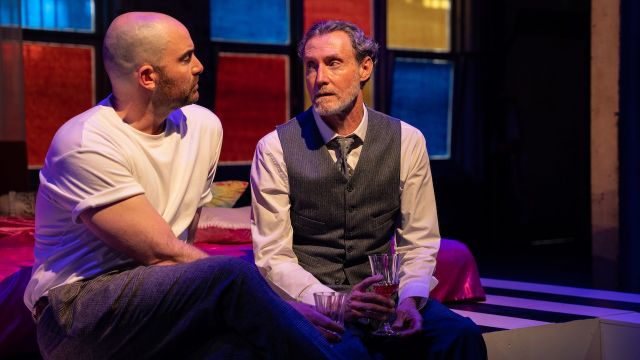The Inheritance (Parts I & II)
The Inheritance is many things. It chronicles the fraught relationships – sexual and otherwise, tender, cruel, obsessive, bewildering, giving and selfish, destructive and self-destructive – of a group of characters across a vast span of time. It is vast because it drags the key characters’ pasts into the present, and the past and their pasts are vitally important elements of the story. It is also funny with sharp and snappy one-liners and bitchy gay humour. It is, if you wished to be reductive, an engrossing, sprawling soap opera about gay love – and love - and real estate.
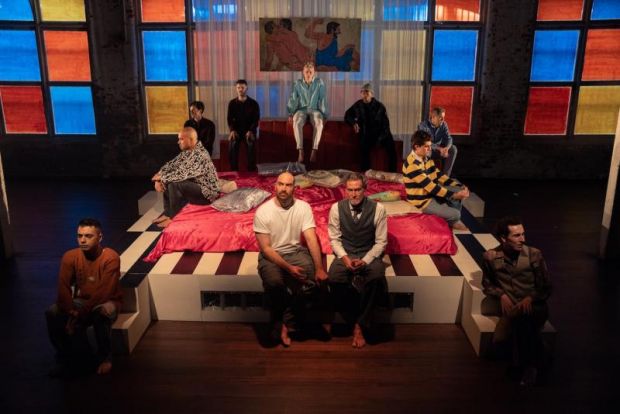
But the play embeds relationships in a contemporary gay milieu – a milieu that risks forgetting the struggles and the tragedies of the past – and takes the risk of making that explicit. Although its present is 2015-2018, the play chronicles mostly New York gay male history as far back as the Stonewall riots, and through the AIDS plague – the history and its lessons, the play argues, at risk of being lost.
The Inheritance is inspired by – rather than ‘based on’ – E M Forster’s 1910 novel Howard’s End. That is, there are parallels, echoes, themes and crucial plot points that playwright Matthew López employs in his telling of an (almost) totally gay story. Most central to the novel and this play is Forster’s injunction, ‘Only connect.’ Here it is to connect to each other, connect to the world and connect to the past. The eponymous house of the novel finds its equivalent in a house in upstate New York that becomes a sanctuary and a hospice for men dying of AIDS.
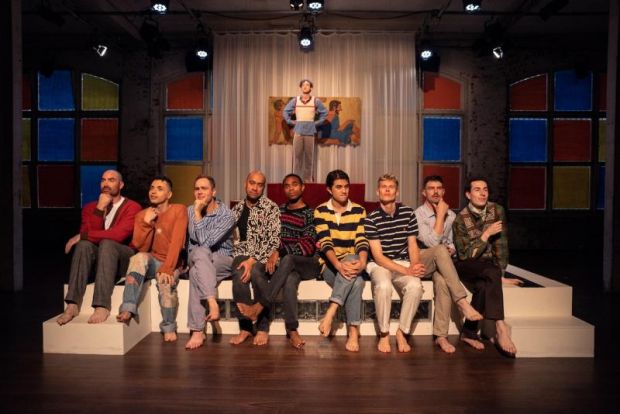
Indeed, Forster himself appears as a character – known here as ‘Morgan’, his middle name – as a kind of well-mannered ghost from an oppressive, closeted past, but an inspiration and storytelling guide to the contemporary characters as they shape their stories. Morgan (an almost ethereal, gentle yet firm Dion Mills) intervenes in the narrative in Part I, always to point it in a more truthful, illuminating way. But a felicitous device is that Mills also plays Walter Poole, a man from an earlier epoch with the dry humour, speech and manners of that epoch – and epoch in which gays were persecuted, shunned and forced into secret lives to survive. Morgan and Walter almost merge because Walter has learned what Forster wanted to say: he connects, and he loves. Walter’s telling of his past and that of the house is elegiac and deeply evocative of time and place.
The whole is brought vividly to life by a splendid cast of thirteen – all of them doubling, sometimes as sharply individual characters, sometimes as narrators, sometimes as the ghosts of those who died, and sometimes as spectators at the drama going on centre stage. At the centre is Eric Glass (Charles Purcell), a gentle, generous, vulnerable but recessive man who suffers but evolves – and his lover Toby (Tomás Kantor), mercurial, ruthless, dangerous, selfish and self-destructive, hiding and hating his past. Purcell’s stolid, decent, vulnerable Eric and Kantor’s kinetic, vile but irresistible Toby make excellent foils for each other.
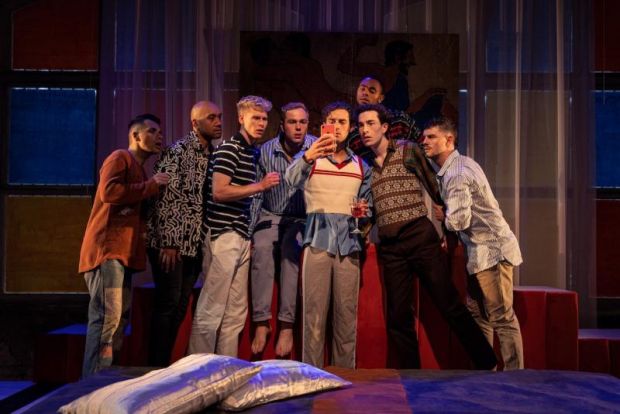
Linking the storylines of Toby’s theatrical success and Toby’s falling obsessively in love are the key but very different roles of Adam, a swollen-headed actor, and Leo, a near identical homeless rent boy. Both are played by Karl Richmond. While other characters are loud and flashy, Richmond gives us both his characters with quiet subtlety and a clear delineation of each of these characters as they develop in their very different ways.
The one female character here is Margaret Avery, played with great simplicity and heart-breaking regret by the wonderful Jillian Murray. It is significant that a key theme of acceptance and love is embodied here by a mother. Murray holds the audience totally in a long monologue about the son she rejected until it was too late.
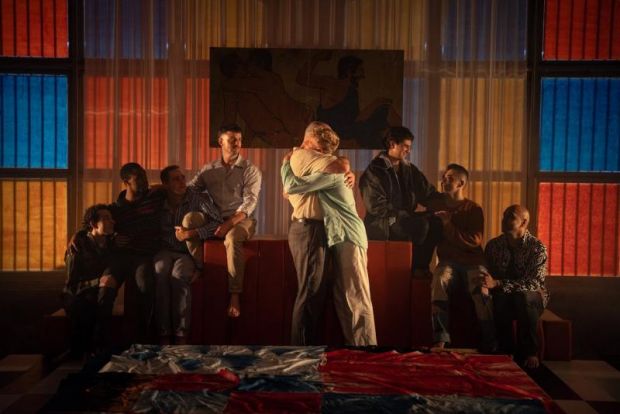
López is not afraid to critique his characters and their present milieu for their affectations and shallowness, but their chief flaw is to take their acceptance for granted, and their lack of gratitude and amnesia about the past. He even constructs a Shavian scene where Henry Wilcox (Hunter Perske in a beautifully restrained performance), Republican multi-millionaire property developer, argues forcefully for the virtues of free enterprise and how it was the profit motive that brought about a cure for AIDS…
Director Kitan Petkovski animates and moves them all with an energetic fluidity and clarity – and he brings out performances always with sympathy even when a character’s actions are at their most repellent. It was always clear – from, say, The Gospel According to Jesus, Queen of Heaven - that Petkovski is a skilled, imaginative director with a strong visual sense. Here, with his biggest canvas to date, he proves that again.
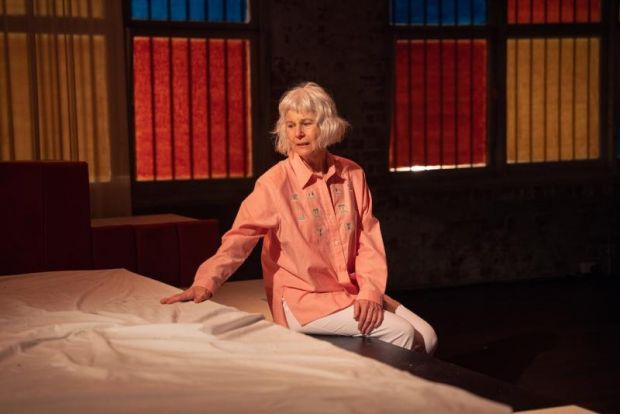
Of course, The Inheritance has been and is compared with Angels in America and yes, perhaps it lacks the thematic scale, depth and focus of that play, but it is nevertheless moving, articulate, entertaining and important. Like Angels, it is in two parts, each here over three hours long. Each part has a twenty-minute interval, but the two parts can be seen on two subsequent nights. It demands some stamina, but also our attention and patience. Both are rewarded. Actions have consequences. Characters learn and grow and are rewarded or punished. It is the characters’ trajectories and the actors’ performances (bringing more than may be on the page) that hold audiences across this length of time. True, there are longueurs when dialogue becomes a little too ‘on the nose’ or when López pauses rather self-consciously or self-importantly to insert his characters didactically debating the ‘issues’. But to hold the audience’s attention through such things and keep them with and in the narrative is a major achievement. And much praise must go to producer Cameron Lukey and fortyfivedownstairs for mounting this epic behemoth.
Michael Brindley
Photographer: Cameron Grant
Subscribe to our E-Newsletter, buy our latest print edition or find a Performing Arts book at Book Nook.

